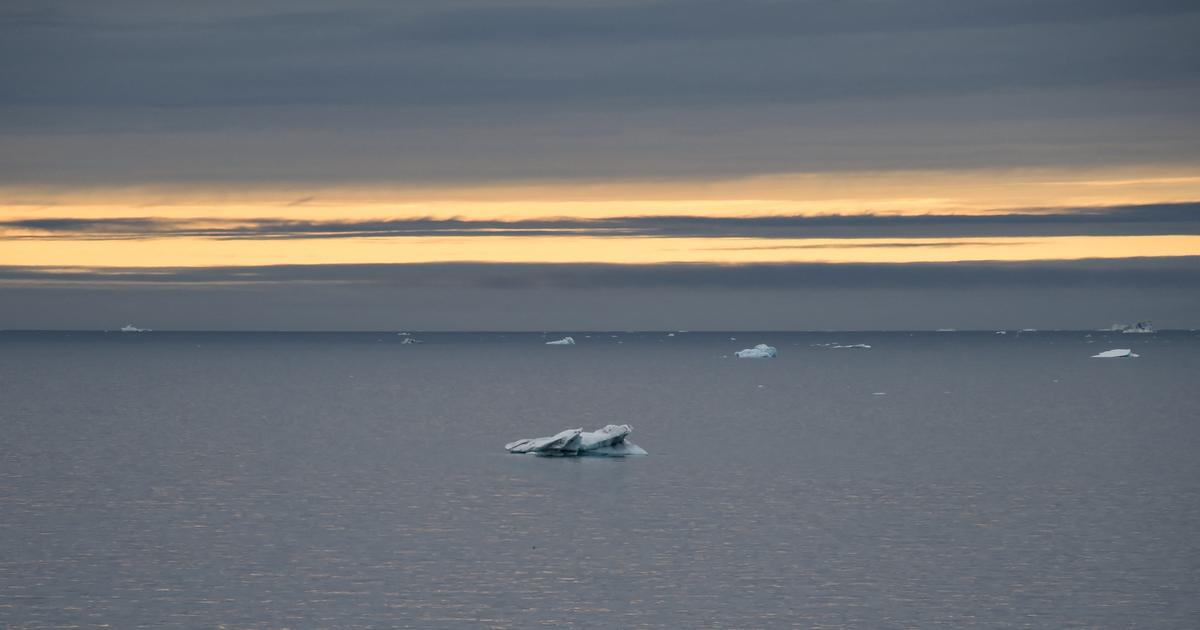Climate change is causing the ice on the glaciers in the Alps to melt faster than previously assumed.
In Germany there should soon be nothing left of the pathetic remains.
Munich - It is a sad realization: Germany's glaciers are melting away.
They always cast a spell over people.
They shaped the Alps for a long time.
But the last “eternal” ice could have melted in ten years.
Climate change is behind this, too.
"The days of our Bavarian glaciers are numbered, and earlier than expected," said Bavaria's Environment Minister Thorsten Glauber (Free Voters) at the presentation of the second Bavarian Glacier Report on Thursday in Munich. So far, experts had assumed that the death of the five remaining glaciers could drag on until 2050.
All five are in Bavaria.
These are the northern and southern Schneeferner, the Höllentalferner on the Zugspitze massif * as well as the Blaueis and the Watzmann Glacier in the Berchtesgaden Alps.
"Since 1850, the end of the Little Ice Age, we have lost around 88 percent of the area of the glacier and well over 90 percent of its volume," explained glaciologist Christoph Mayer from the Bavarian Academy of Sciences.
The ice surface has shrunk from more than four square kilometers to less than half a square kilometer.
A comparison to get a better idea: The Theresienwiese in Munich is also not quite half a square kilometer.
Glaciers in Bavaria are dwindling: "The causes and interactions are clearly in climate development"
"The remaining volume that we now have on the glaciers in Bavaria is only about 50 percent of what has melted in the last ten years," said Mayer. It hit the southern Schneeferner particularly hard, of which only miserable remains exist today. It is predicted to be completely gone in a few years. Even the blue ice and the Watzmann glacier will probably not be able to withstand much longer. Even the comparatively robust northern snow farmer loses around 250 liters of meltwater every 30 seconds.
"The causes and interactions are clearly in the climate development," emphasized Mayer.
It is not the temperatures in the Alpine region, which have risen more than the German average, alone that are causing problems for the glaciers.
For example, the humidity and the proportion of dark areas on and around the glacier also play a major role.
“The Bavarian glaciers could still live well with the climate of 30 years ago.
Unfortunately not with today's radiation and temperature conditions ”, explained Mayer.
Video: The world's glaciers are melting faster than ever
Glaciers in Bavaria are melting faster than expected - with far-reaching consequences everywhere in the Alps
The melting of the glaciers has far-reaching consequences everywhere in the Alps, for example for the drinking water supply of the population.
In addition, around 60 percent of all animal and plant species in Germany live in the Alpine region, as Environment Minister Glauber explained.
Many of them are at risk from climate change.
The warming also affects the permafrost: Without this “glue” of the high mountains, rock falls and mudslides, i.e. landslides made of mud and rubble, increase.
(dpa / cibo) * Merkur.de / bayern is an offer from IPPEN.MEDIA.
By the way: The most important stories from the Free State are now also available in our brand new, regular Bayern newsletter.






